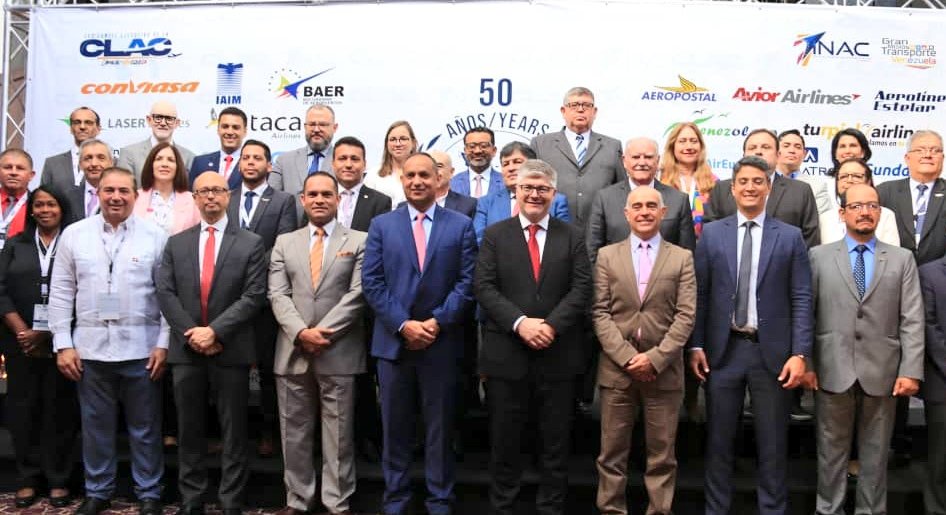During his visit to Venezuela this week, ICAO Secretary General Juan Carlos Salazar emphasized the significance of comprehensive capacity building initiatives in Latin America, promoting the secure, sustainable, and safe advancement of air services in the region. He conveyed this message at both the 103rd Meeting of the Latin American Civil Aviation Commission’s Executive Committee and through a series of high-level bilateral conversations. These meetings included discussions with the Minister of Transport of Venezuela, Mr. Ramón Celestino Velásquez Araguayán, the President of Venezuela’s National Institute of Civil Aeronautics, Col. Leonardo Briceño Dudamel, and several other Directors General of Civil Aviation.
 In the context of the challenges and opportunities presented by air transport’s recovery from the impacts of the COVID-19 pandemic, and the critical need to build capacity to respond, Mr. Salazar highlighted the critical significance of assuring good governance of aviation authorities and adequate infrastructure planning and modernization. Mr. Salazar also placed a significant focus on climate change and the efforts by ICAO and other aviation stakeholders to achieve the long-term global aspirational goal (LTAG) for international aviation of net-zero carbon emissions by 2050, with the Committee’s Regional Seminar on Civil Aviation Environmental Initiatives providing an important platform.
In the context of the challenges and opportunities presented by air transport’s recovery from the impacts of the COVID-19 pandemic, and the critical need to build capacity to respond, Mr. Salazar highlighted the critical significance of assuring good governance of aviation authorities and adequate infrastructure planning and modernization. Mr. Salazar also placed a significant focus on climate change and the efforts by ICAO and other aviation stakeholders to achieve the long-term global aspirational goal (LTAG) for international aviation of net-zero carbon emissions by 2050, with the Committee’s Regional Seminar on Civil Aviation Environmental Initiatives providing an important platform.
Sustainable aviation fuels (SAF) were naturally at the centre of these discussions, given that they will need to provide half of the necessary reduction in emissions. In this regard, the Secretary General prioritized partnership in the ICAO Assistance, Capacity-building and Training for Sustainable Aviation Fuels (ACT-SAF) programme, the implementation of the Carbon Offsetting and Reduction Scheme for International Aviation (CORSIA), and active contributions to the upcoming Third ICAO Conference on Aviation and Alternative Fuels (CAAF/3).
A variety of safety and security priorities were furthermore addressed by the Secretary General, including the need to conjugate systemwide information management (SWIM) implementation with the adoption of resilient and reliable systems capable of tackling potential cybersecurity threats, as was the importance of safeguarding aviation’s role as a catalyst for strategic development by implementing ICAO’s guidance on fees and charges.
Venezuela’s commitment in these areas was illustrated by its conclusion of a new Management Services Agreement with ICAO, and a Project Document that will foresee ICAO experts identifying critical priorities and establishing a roadmap for civil aviation investments, in close cooperation with the national civil aviation authority. The Secretary General was accompanied throughout his mission by ICAO’s Capacity Development and Implementation Director, Mr. Jorge Vargas; Air Transport Director, Mr. Mohamed Rahma; and South American Regional Director, Mr. Fabio Rabbani.

